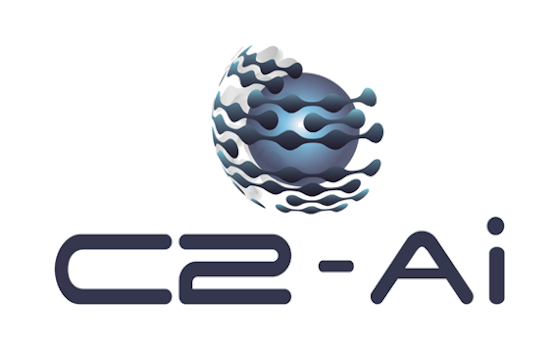 Compass app to help NHS trusts prevent hospital-acquired acute kidney injury and pneumonia - both of which cause harm to COVID-19 patients and can be fatal. Hospitals could alleviate pressure on ICU, save hundreds of lives and reduce costs associated with critical care by millions of pounds.
Compass app to help NHS trusts prevent hospital-acquired acute kidney injury and pneumonia - both of which cause harm to COVID-19 patients and can be fatal. Hospitals could alleviate pressure on ICU, save hundreds of lives and reduce costs associated with critical care by millions of pounds.
NHS trusts are being offered an app aimed at reducing serious harm and hundreds of deaths that are linked to two deadly hospital-acquired conditions - acute kidney injury (AKI) and pneumonia (HAP).
Known as Compass, the mobile app provides NHS clinical staff with a tool for accurately assessing every individual patient’s risk of developing the conditions in hospital, so that appropriate action can be taken to prevent significant numbers of AKI and HAP cases, reduce admissions to intensive care, and decrease associated morbidity and mortality.
A study by researchers at University Hospital Southampton NHS Foundation Trust, carried out between March and May this year, found that AKI was present in 31 per cent of Covid-19 hospital patients, and that AKI was associated with 27 per cent of admissions to ICU. The findings also showed that 44 per cent of Covid-19 patients with AKI died, compared to 19 per cent of Covid-19 patients without AKI.
The company behind the Compass app, C2-Ai, says that data from hospitals around the world already using the Compass system shows hospitals can expect to reduce instances of hospital-acquired AKI and pneumonia by 50-60 per cent. It also says an average sized hospital in the UK could expect to save approximately 500 lives per year and around £7 million in costs directly associated with the conditions, whilst alleviating ICU capacity by 10 per cent – an important consideration at a time of unprecedented pressure being faced by hospitals.
The app, which is approved by the Medicines & Healthcare products Regulatory Agency, is being offered to NHS hospitals entirely free of charge for the first 90 days of use, in an effort to support hospitals as winter pressures set in and the second wave of Covid-19 continues to rise.
Steve Barnett, vice president of global engagement at C2-Ai, said: “We’re offering hospitals a chance to trial the technology because we want NHS trusts to be as prepared as they can be to treat patients. With rising numbers of Covid-19 cases and potential winter flu disruption, hospital bed capacity on wards and in intensive care units is vital. We want to help hospitals save lives, free up clinicians’ time and save money on treating harmful conditions that are avoidable.
"By risk-assessing patients on admission for their risks of acquiring hospital-acquired acute kidney injury and pneumonia, the system supports clinicians with specific advice on care tailored to each patient - reducing the number of patients acquiring the conditions and so preventing harm and saving lives. Hospitals want the best outcomes for patients, and we have the technology to help them make assessments more efficiently to provide the best care. Information from hospital finance teams show our app saves them thirty times the amount they would otherwise have to spend on extra bed days and ICU resources for AKI and HAP."
Vulnerable and older patients are particularly susceptible to both conditions. Rates of these conditions have tripled in some locations during the Covid-19 pandemic at a time when bed-capacity and resources need to be applied elsewhere.
Comorbidities such as hospital-acquired AKI and HAP cause an average of six and eight additional days in hospital, respectively. They are also found to increase the risk of death in Covid-19 patients, with AKI in particular being highlighted as problematic in guidelines issued by the National Institute for Health and Care Excellence (NICE).
The Compass app can be downloaded onto a smartphone and used by clinicians immediately, without the need to integrate or store data. Using artificial intelligence, the app can evaluate a range of comorbidities and circumstances more quickly than might be done manually, with guidance on how to treat the patient provided. It is being used and trialled by several NHS trusts, based on approaches that have worked to reduce these conditions in several countries already.
Hassan Chaudhury, digital health lead at Healthcare UK - a joint initiative between the Department for International Trade (DIT), NHS England and the Department of Health and Social Care (DHSC) - believes C2-Ai's technology could be of great benefit to the NHS.
"I'm often asked about artificial intelligence (AI) in the UK. When I do, I always point to C2-AI - saving lives all over the planet by predicting avoidable harm and mortality with world-leading AI based on a dataset of 140 million patients from 46 countries. They are globally unique, innovative, British award-winners. I consider them to be essential for any nation which wants to take digital health seriously. If their innovation was scaled across the NHS I estimate it would save 70,000 lives and £1bn."
About C2-Ai
C2-Ai is a trusted NHS digital approved partner with access to full national datasets and running on the N3 network. C2-Ai has provided national support for the Keogh Review and to Professor Sir Mike Richards at the CQC, and our systems are locally in use in 12 NHS trusts and in 11 countries.C2-Ai provides a unique, AI-backed suite of hospital care quality/efficiency improvement tools (CRAB & Compass). They are developed from 30 years of research, ten years of development and the world’s largest (120m) and geographically broadest patient data set (from 46 countries). In the UK these have a track record for delivering demonstrable improvements in:
- Reducing avoidable harm and unwarranted variation
- Reducing length of stay
- Reducing critical care demand
- Improving clinical cost effectiveness
- Reducing readmissions